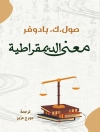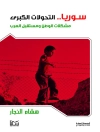In the midst of the current ecological crisis, there is often lofty talk of the need for humanity to ‘overcome its divisions’ and work together to tackle the big challenges of our time. But as this new book by Razmig Keucheyan shows, the real picture is very different. Just take the case of the siting of toxic waste landfills in the United States: if you want to know where waste is most likely to be dumped, ask yourself where Blacks, Hispanics, Native Americans and other racial minorities live and where the poorest neighbourhoods are. This kind of ‘environmental racism’ is by no means restricted to the United States: it is very much a global phenomenon.
Keucheyan show how the capitalist response to the crisis has been marked by a massive expansion in ‘environmental finance’. From ‘carbon markets’ to ‘pollution permits’, ‘climate derivatives’ and ‘catastrophe bonds’, we are seeing a proliferation of nature-related financial products. Instead of tackling the root of the problem, the neoliberal strategy seeks to profit from environmental risks.
Moreover, with the rise in natural disasters, resource scarcity, food crises, the destabilization of the poles and oceans and the prospect of tens of millions of ‘climate refugees’, Western powers are increasingly adopting a military response to ecological problems. The Cold War is over: welcome to the ‘green wars’. From New Orleans to the Siachen glacier via the Arctic floes, Keucheyan explores the landmark sites of this new ‘climate geostrategy’.
Through a sharp critique of the way capitalism responds to environmental disaster, this innovative book provides a fresh perspective on some of the most critical issues confronting our societies today.
قائمة المحتويات
Contents
Introduction
Chapter One: Environmental racism
A philosophical event
The colour of ecology
Hurricane Katrina as a ?metaphor? for environmental racism
The spatiality of racism
Lead poisoning and class struggle
Postcolonialism and environmental crisis: the conflict in Darfur
Ecological inequalities: A Marxist approach
The archaeology of environmental racism
Race and reforestation
Purifying nature?
? and naturalising race
Exporting the environment
The coming political ecology
Conclusion
Chapter Two: Financialising nature: Insuring climatic risks
Financial markets ?plugged into? nature
Principles of insurance
New risks?
The ontology of catastrophe
Risk and postmodernity
Cat (catastrophe) bonds
Nature as ?real abstraction?
Carbon markets and unequal development
Constructing profitable markets
A ?multi-cat? bond in Mexico
Ecological crisis and the fiscal crisis of the state
A derivative nature
Nature as accumulation strategy
Conclusion
Chapter Three: Green wars, or the militarisation of ecology
A doctrine emerges
A benevolent dictatorship
Chaos specialists
Terrorism and climate change
The new military ecology
Conservation and counter-insurgency
Econationalism
Agent Orange
From the Cold War to green wars
The end of conventional wars?
Double movement
Climate refugees
Nuclear deterrence and ecological crisis
War and biofuels
The oceans destabilised
The scramble for the Arctic
The North Pole and globalisation
Commodifying the thaw
The speed of the circulation of capital
Conclusion
Conclusion: Game over?
Notes
عن المؤلف
Razmig Keucheyan is an assistant professor in sociology at the University of Paris-Sorbonne. He is the author of Le constructivisme. Des origines à nos jours and has recently edited a selection from Antonio Gramsci’s Prison Notebooks in French. He is also the author of Nature is a Battlefield (Polity Books, 2016) and The Left Hemisphere: Mapping Critical Theory Today (Verso 2013).












